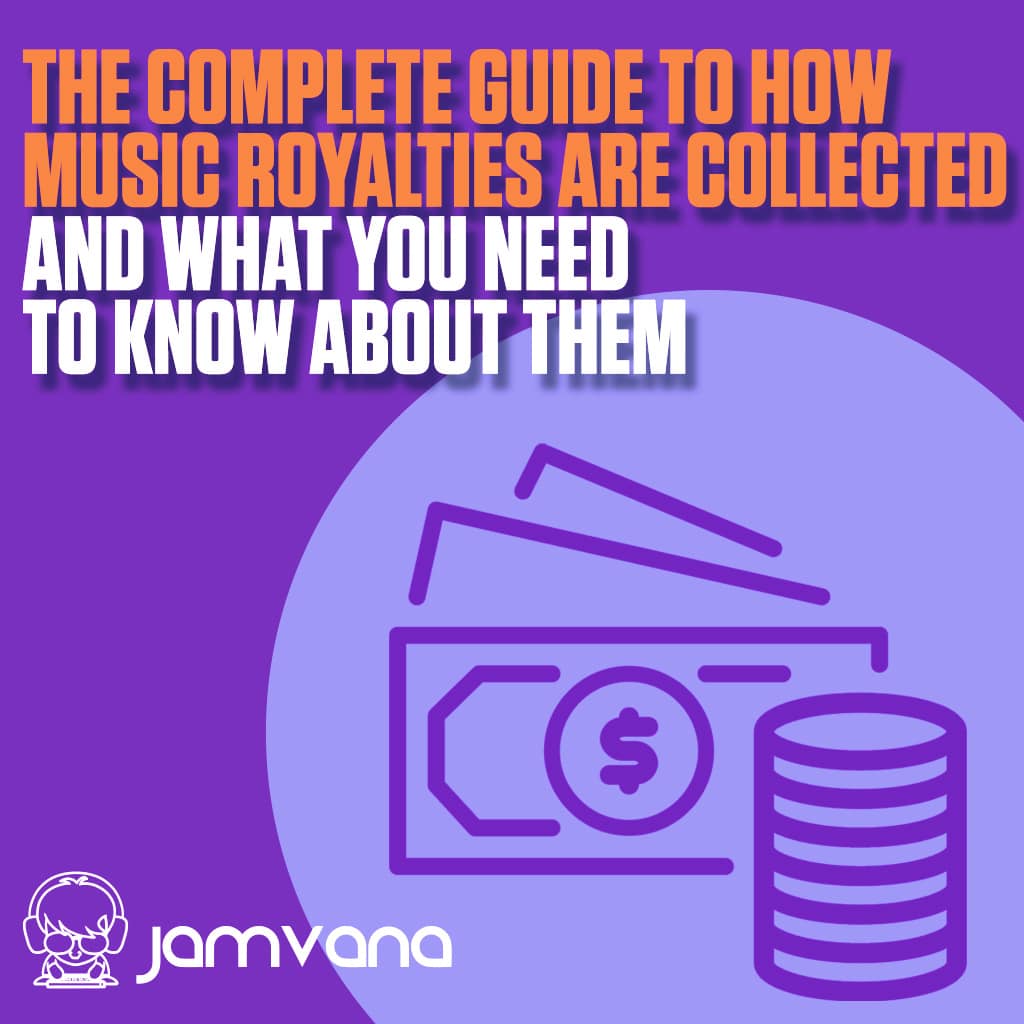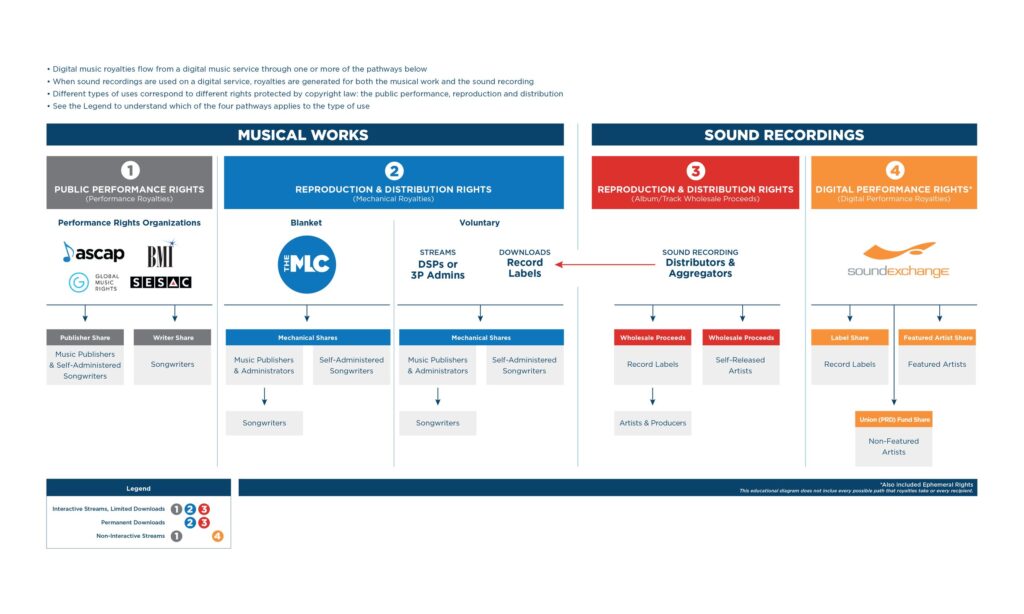

What are music royalties? Who collects them? Who receives them? How do I collect ‘em all, like Pokémon? Music royalties are a complicated topic in the music industry, and things are constantly evolving. Apple Music, for example, pays a different amount of royalties than Spotify, TIDAL, and other digital service providers. Once those royalties are collected by your distributor, they need to be allocated to the appropriate copyright holders. But how much? When? Do I only need a music distributor to collect all of my royalties? These are the questions we’re going to be answering in this blog post.
Music royalties are the fees that an artist earns for their work when it is played on the radio, streamed on a streaming service, or downloaded on Beatport, among other things. They are paid by streaming services, radio stations, TV networks, and other companies or artists who play an artist’s music in a public setting. The keyword here is public. Performing a song or playing a song on Spotify for a private birthday party at your house is not a public performance; therefore, you do not need to acquire the proper licenses to play it. Performing that song at a club or coffee shop is a public performance and requires the proper license and permission from the copyright holders. Royalties paid out by streaming services to music distributors is set on a per-song basis and it is usually paid out to the master copyright owner(s), which is typically the artist or label. Songwriter(s) and publisher(s) are also paid, but they are not paid by the distributor. However, some music distributors have the ability to collect and pay out mechanical royalties. Songwriters can also earn a percentage of revenue from concerts where their songs are performed live or from merchandise sales if they have signed an exclusive publishing agreement with a particular company. These are called “360 deals.” If you’re an artist and performing your music publicly at a local venue, you can earn royalties. That’s considered a public performance, and you should submit a setlist to your PRO ahead of time.

Musicians are entitled to different types of royalties for their work. These royalties are collected by different entities, and the amount that is paid to the musician varies from one type of royalty to another. Let’s take a look at the different types of royalties and how they’re collected. Mechanical Royalties: This type of royalty is collected by a mechanical rights administrator on behalf of the songwriter or composer. In the United States, it’s the Mechanical Licensing Collective. Songtrust also collects these royalties, so if you’re registered with them you do not need to sign up to the MLC. The mechanical royalty is typically paid every time a song is streamed or sold. The amount that is paid can vary depending on a number of factors such as streaming vs. digital sales, international rates, etc. Sign up to our email list to receive a free PDF guide with all of the organizations you should register with to collect all of your royalties.